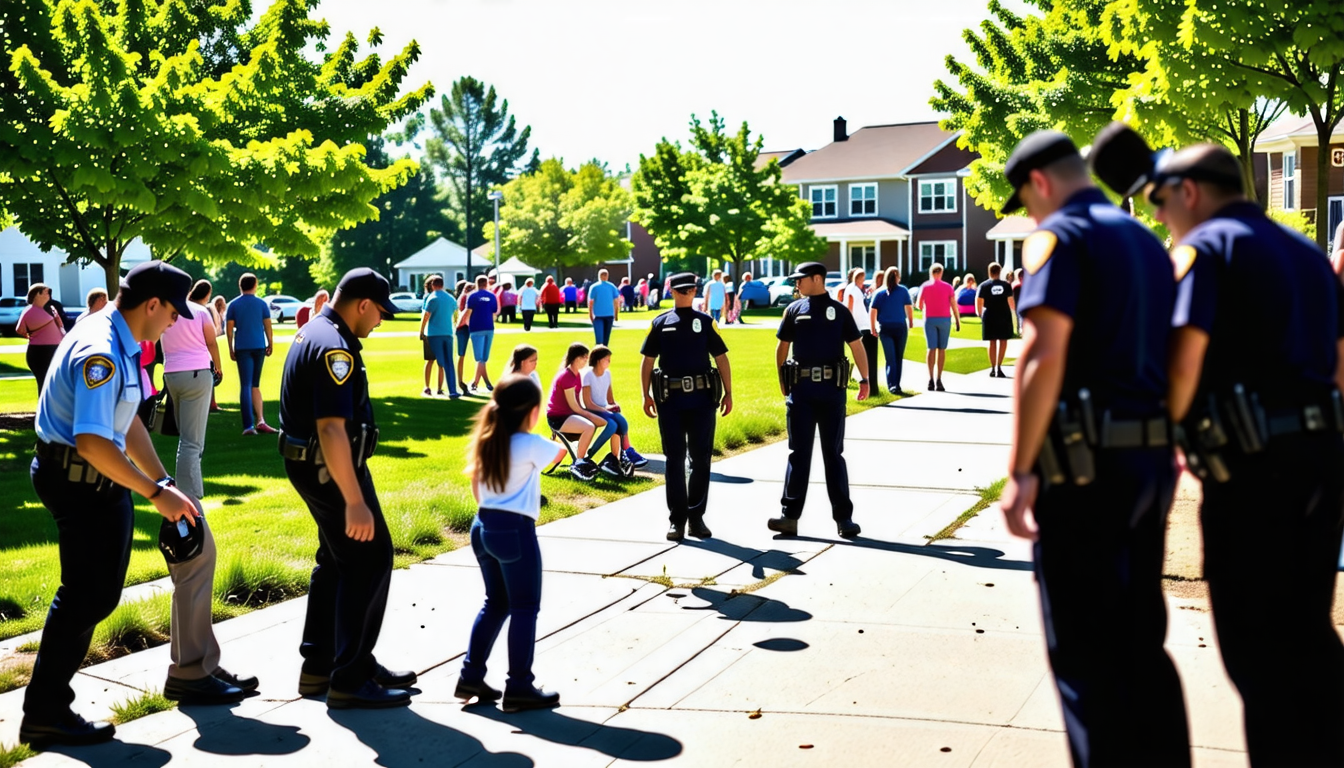|
IN BRIEF
|
When it comes to interactions with law enforcement, knowing how to identify a police officer can be crucial for your safety and peace of mind. In Canada, officers are committed to transparency and accountability, which is reflected in their uniforms, badges, and ID cards. A uniformed officer typically carries clear markings that signify their authority, but it is also essential to recognize your rights when engaging with them. If a police officer approaches you, they are obliged to disclose their identity upon request, providing their name and badge number. Understanding these aspects not only empowers citizens but also fosters a strong relationship between the community and law enforcement, enhancing overall public safety. Let’s explore the ins and outs of identifying officers in your area.
Understanding how to properly identify a police officer is vital for ensuring safety and communicating effectively during encounters with law enforcement. Through various identifiers such as badges, uniforms, and official identification, citizens can verify the authenticity of a police presence. Knowledge of the regulations surrounding police identification can empower citizens and enhance mutual respect between the community and law enforcement officials.
Conclusion: The Importance of Awareness
Ultimately, being aware of how to identify a police officer enhances public safety and fosters healthy relationships between law enforcement and community members. The more informed citizens are about their rights and the identifiers of police officers, the better equipped they will be to engage with law enforcement positively. By utilizing available resources and maintaining open and law-abiding dialogue, both parties can work together towards a more secure community.
Badge and ID Card Identification
When in doubt about whether an individual is a legitimate police officer, one can request to see both their badge and ID card. In Canada, all police officers are required to display these forms of identification when asked. A police badge will usually bear a distinct regimental number, which is unique to each officer, and can be cross-referenced if needed.
The ID card functions differently; it typically contains a photograph of the officer along with their name and rank, validating their authority. Officers are legally obligated to provide this identification upon request, which adds an extra layer of accountability and transparency to their role in the community.
What Happens If They Refuse to Identify Themselves?
If a police officer is unwilling to present appropriate identification, this can be grounds for concern. In such an instance, a citizen would be within their rights to contact local police dispatch to verify the officer’s identity. This is particularly crucial in today’s digital age, where impersonation and fraudulent activities can occur. Verification can give citizens peace of mind and ensure that they are dealing with a legitimate officer.
Identifying a police officer in Canada involves knowing what to look for, especially in moments of uncertainty. Each officer is required to display their badge and a unique regimental number on both the badge and their ID card. This ID card, which features a photo, serves as a key identifier, particularly when interactions occur in civilian clothing or plain clothes. In situations where individuals are unsure about the authenticity of an officer, they can request to see the officer’s badge and identification. Officers are mandated to comply and provide their name and badge number upon demand. This transparency aims to foster trust between the police force and the community they serve.
Statistics indicate that approximately 80% of Canadians trust their local police, yet this trust can be threatened during encounters where identification is blurred. Furthermore, under Canadian law, police cannot demand identification without reasonable suspicion of criminal activity, safeguarding citizens’ rights. According to the Peel Police, every Canadian has the right to know their obligations and limits when interacting with law enforcement. Knowing how to identify a police officer not only protects individuals but also reinforces community safety.
Identifying a police officer in Canada is essential for ensuring safety and transparency within the community. When approaching a law enforcement situation, it is crucial to look for the officer’s uniform, which typically displays official insignia signifying their authority. Furthermore, officers are required to present their badge and ID card upon request, both of which will share the same regimental number and include a photo. It is important for citizens to understand their rights during interactions with law enforcement; notably, an officer must provide their name and badge number if asked. If you’re ever unsure of an officer’s identity, you can always contact police dispatch for verification.
FAQ
How can I identify a police officer in Canada?
R: You can identify a police officer in Canada by asking them to show their badge and ID card. The badge and ID will display the same regimental number, and the ID card will also include a photo of the officer.
Do police officers have to provide their name and badge number?
R: Yes, if you ask a police officer for their name and badge number, they are required to provide this information, allowing you to contact them later if necessary.
What should I do if I am unsure if I am talking to a police officer?
R: If you have concerns about the identity of a police officer, you can contact police dispatch to confirm their identity and verify if they are on duty in your area.
Do I have to show my ID to a police officer in Canada?
R: Generally, you are not obligated to show your ID unless you are suspected of a crime. However, an officer can request identification if they have reasonable suspicion of criminal activity.
Can police officers in Canada demand identification without cause?
R: No, police officers cannot demand identification without cause. They must have a valid reason or reasonable suspicion to justify such a demand.
